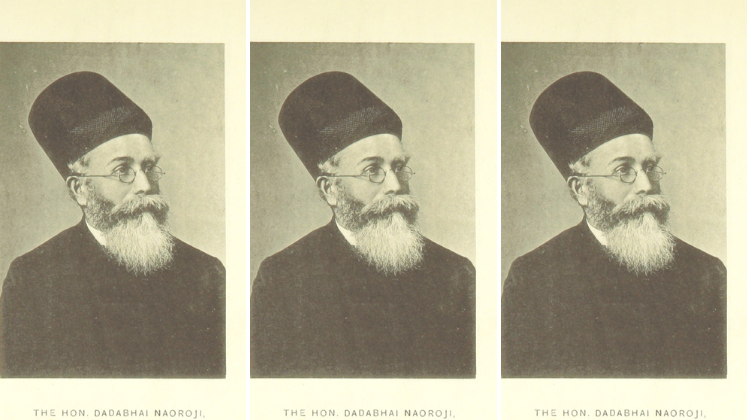 In Representing Europeans, Richard Rose discusses the ways in which Europe’s institutions do and do not represent its citizens, arguing that more European integration is not the solution for all of Europe’s problems. With chapters on referendums, representation and interdependence, Nathalie Brack recommends this book to academics and students, but also to journalists looking for an interesting, critical and concise book on representation in the EU.
In Representing Europeans, Richard Rose discusses the ways in which Europe’s institutions do and do not represent its citizens, arguing that more European integration is not the solution for all of Europe’s problems. With chapters on referendums, representation and interdependence, Nathalie Brack recommends this book to academics and students, but also to journalists looking for an interesting, critical and concise book on representation in the EU.
Representing Europeans: A Pragmatic Approach. Richard Rose. Oxford University Press. April 2013.
This book offers a critical perspective on the main challenge that the EU faces: a legitimacy and accountability deficit. The European polity can no longer rely on justifications by history and peace, and although the recent treaty reforms sought to address popular concerns on the EU’s democratic deficit, they have in turn opened Pandora’s Box, leading to strong and sometimes negative reactions among public opinion. In addition, the Eurozone crisis further challenges the output legitimacy of the EU. This constitutes the starting point of the book, with Richard Rose arguing that the end of integration by stealth requires the EU to secure the political commitment of the people. More specifically, the EU needs the commitment of its citizens in order to deal with the current challenges it faces and to rely on new justifications of integration.
Representing Europeans is structured around three main questions. First, who or what do EU institutions represent? Second, how do citizens relate to EU institutions? Third, what is the best way to find out whether agreements made at the supranational level represent the views of European citizens? Rose shows that most EU institutions represent only indirectly, if at all, European citizens and that there is a weak linkage between the European people and EU institutions. At the same time, in the context of a globalized world, Member states face more interdependence than ever and there is a need for collective action. The book then questions whether the EU is the best solution to deal with this need for collective action given the legal challenges and the lack of money it faces, and also the one-size-fits-all type of policies the EU tends to produce.
As a remedy, Rose proposes that when there is no consensus to act at the supranational level, a coalition of willing Member states should turn to a pragmatic alternative: enhanced cooperation. Moreover, when it imposes immediate and visible costs, a new treaty should then be submitted to the European people through a pan-EU referendum. Such referendum would remain advisory and would lead to a Europe-wide campaign on further integration. According to the author, it would be fairer as it would give citizens sanction to enforce accountability and offer the same choice to every citizen (contrary to the current situation where most Member states do not organize referendum on EU treaties).
The book gives a refreshing perspective on the most important challenge for the EU in the context of economic crisis. Short, very well-written and with clearly argued points, this book is intended for a wide audience. Moreover, it relies on interesting and well presented data from EUprofiler (an impartial tool designed to inform users about the political landscape in Europe ahead of the June 2009 European Parliament elections). Rose describes the powers of EU institutions, the evolution of the EU as well as its decision-making and explains very clearly the weak linkage between European citizens and supranational institutions and the asymmetry of representation of representation at the EU-level.
And yet I must admit that I am not fully convinced by the book’s argument on the use of a pan-European referendum as the best way to ensure citizens commitment to further integration. The author devotes most chapters to the challenges on representation at the EU level and the book contains only two chapters on the issue of referendum. I would have appreciated an extra chapter on how it would work out concretely. More particularly, it would have been interesting to discuss how such pan-EU referendum would lead to a real EU-wide campaign and ensure that the referendum would not be about national concerns, used by citizens to evaluate the actions of their government at the national level (see for instance, Hix, 1999). Moreover, the book does not discuss the current debates to reform the next EU elections within the EP such as an EU-wide constituency and the personalization of the European elections through the nomination of a candidate for the President of the Commission by each group to raise the interest of citizens towards the elections and make the EU more accountable. Finally, although the book is intended for a wide audience, it could have discussed a bit more the literature on direct democracy, politicization and the EU. Indeed, the argument of using direct democracy is not new and it would have been stimulating to read more as how the proposition contained in the book as to the use of a referendum relates to the arguments and debates in the literature in that respect (see for instance Feld and Kirchgäsnner, 2003; Magnette, 2003; Magnette and Papadopoulos, 2008).
In a nutshell, I highly recommend this book to academics, students but also journalists and citizens who are looking for an interesting, critical and concise book on representation in the EU.
———————————
Nathalie Brack is a research and teaching assistant at Université libre de Bruxelles, Belgium and member of the CEVIPOL. She holds a PhD in political science and her main research interests are Euroscepticism at the supranational level, political opposition, the European Parliament, legislative studies and parliamentary representation. She recently coedited a book on Euroscepticism within the EU institutions, a special issue of the Revue International de Politique Comparée on political oppositions in contemporary democracies and published several articles in peer-reviewed journals such as the Journal of European Integration, Representation and Politique européenne. Read more reviews by Nathalie.







